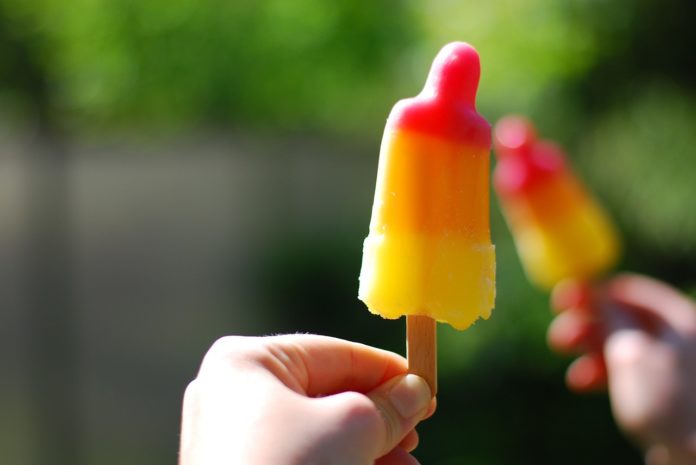Researchers found orange juice that has been frozen and then thawed to room temperature allows better nutrient absorption within the body
That orange lolly you crave for every evening, may actually be a healthy option.
Deep freezing orange juice actually makes carotenoids – the nutrient that gives it the orange colour – better accessible for the body. However the cold treatment does also cause the carotenoids to degrade. Researchers from the Laboratory of Food Colour and Quality at the University of Seville concluded that taking these two effects into account, deep-frozen juices that are defrosted to room temperature or in a microwave are potentially better at increasing the level of carotenoids in the body.
The findings have been published in Science Direct. Bioaccessibility of a compound is the quantity of that compound that is freed from the food and is capable of being absorbed by the intestinal wall so that it arrives in the blood. It then accumulates in the different organs/tissues where it can affect the potential health benefits.
During this project, testing was done on fresh orange juice, on deep-frozen juice that had been defrosted to room temperature, either in a microwave or in the fridge, and on pasteurised juices. The analysis focused on two carotenoids in particular, phytoene and phytofluene, which are both colourless. “These compounds are increasingly acquiring importance among the scientific community as there are ever more studies that indicate their various benefits for health and cosmetics”, explains the University of Seville teacher Paula Mapelli.
“Consumers tend to think that treated juices are “less healthy” than fresh juices. However, in this study, it has been shown how, at least in relation to the content of carotenoids… this is not always correct”
Although all the cold treatments analysed generated carotenoid loss, the deep-frozen juices that were defrosted to room temperature or in a microwave were better sources of bioaccessible carotenoids than fresh juice. “That is to say, despite the fact that the concentration of carotenoids in the deep-frozen juices was less than in the fresh juice, the reduction in the size of the particles and the destruction of the cellular material that these treatment produce mean that the amount of carotenoids that can be absorbed by the intestine is higher”, the researcher adds.
According to the results, among the treatments analysed, pasteurisation is the treatment that produces the highest level of carotenoid degradation and the greatest change in the colour of the juice.
To the question as to in which conditions the natural properties of the juice are best preserved, the experts responded that “fresh juice is the juice that has the highest concentration of carotenoids, but this does not mean that it is the one that raises the carotenoid level in the blood and tissue the most, as you have to take into account the amount of carotenoids that are actually absorbed”.
“Consumers tend to think that treated juices are “less healthy” than fresh juices. However, in this study, it has been shown how, at least in relation to the content of carotenoids that reaches the blood and tissue to protect us from disease, this is not always correct”, comments the University of Seville Faculty of Pharmacy teacher Antonio J. Meléndez.


